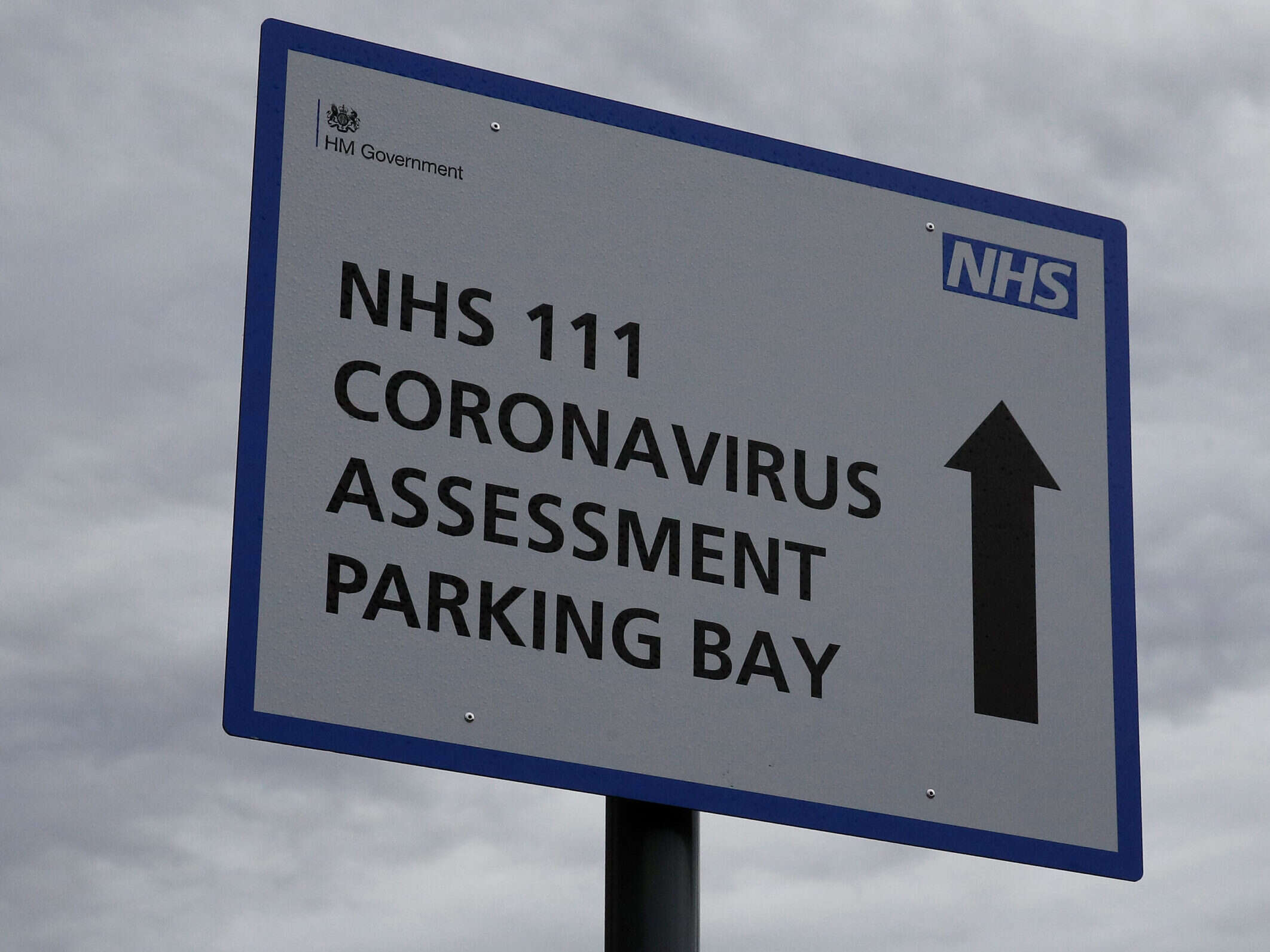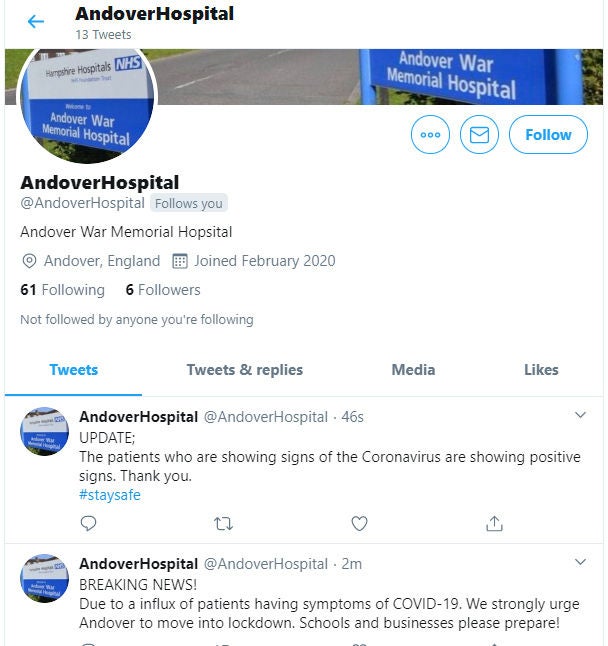
Twitter is suspending accounts sharing false coronavirus news at the behest of the NHS, which has put the onus on platforms to help direct the public to official updates first and foremost.
The NHS has today outlined its battle plan against so-called “fake news” around the coronavirus outbreak, which has now killed six people in the UK out of more than 370 cases.
It said it has been trying to promote good advice while “fighting bad advice and misinformation about the virus in the media and online”, including by working with Facebook, Instagram, Google and Twitter.
Twitter has suspended at least one fake account purporting to be providing news updates from a Hampshire town where coronavirus has been reported.
The NHS has also put forward spokespeople to counter concerning online narratives, for example against “misleading treatments being promoted by homeopaths online” in response to a Telegraph investigation showing how these practitioners are promoting coronavirus “remedies”.
The health service’s work will sit alongside the Government’s new “counter-disinformation unit” monitoring and responding to inaccurate and misleading online posts.
NHS chief executive Simon Stevens said: “Ensuring the public has easy access to accurate NHS advice however they search for it, not only will support people to take the right action but will also help the country’s response to coronavirus…
“It’s right that social media platforms and search engines take any action so they can help ensure the public are directed to NHS advice first.”

A fake account the NHS had suspended from Twitter after it posed as a hospital and posted inaccurate information about coronavirus cases. Picture: NHS/PA Wire
Among the measures taken is the verification of more than 800 Facebook, Twitter and Instagram accounts belonging to the health organisation. On Twitter, that means giving them a “blue tick”.
Google has introduced so-called “knowledge panels”, described as prominent pop-out boxes of information that will readily show NHS and World Health Organisation information in searches.
Searches for “coronavirus” on Facebook and Twitter already bring up links to “credible, authoritative” sources, including the NHS, first.
Twitter has also given free advertising to non-profit organisations that are focused on fact-checking and getting credible information to a wide audience.
Professor Jonathan Benger, chief medical officer at NHS Digital which runs the NHS website, said: “Getting the right health information to the public is essential, particularly during outbreaks of disease.
“Syndication from the NHS website means that people can be confident that the information they see meets the highest clinical standards.
“The more we can share accurate information, the less likelihood there is of inaccuracy and rumour, which could put people at risk.”
Steve Hatch, Facebook’s vice president for Northern Europe, said the platform is “determined to do everything we can to ensure everyone using our platforms can access credible and accurate information”.
He added that Facebook is removing “false claims and conspiracy theories” that “could cause harm to people who believe them” as they are flagged by organisations like the NHS.
Charities have also been forced to enter the fight against “fake news”, as Unicef said it had seen an online post circulating in several languages around the world in its name wrongly claiming that ice cream and other cold foods can help prevent the onset of coronavirus.
The charity’s deputy executive director for partnerships, Charlotte Petri Gornitzka, said: “It can be difficult in today’s information-rich society to know exactly where to go for knowledge about how to keep yourself and your loved ones safe.
“But it is critical that we remain as diligent about the accuracy of the information we share as we are about every other precaution we take to keep ourselves and our loved ones safe.
“Unicef is actively taking steps to provide accurate information about the virus by working with the World Health Organisation, government authorities and with online partners like Facebook, Instagram, Linkedin and Tik Tok to make sure that accurate information and advice is available, as well as taking steps to inform the public when inaccurate information emerges.”
Picture: Reuters/Phil Noble
Email pged@pressgazette.co.uk to point out mistakes, provide story tips or send in a letter for publication on our "Letters Page" blog

